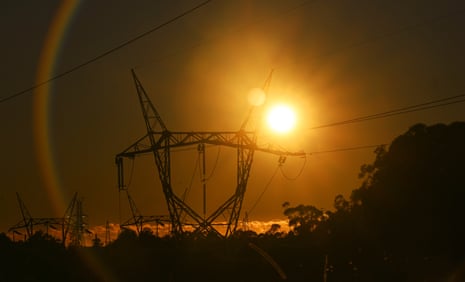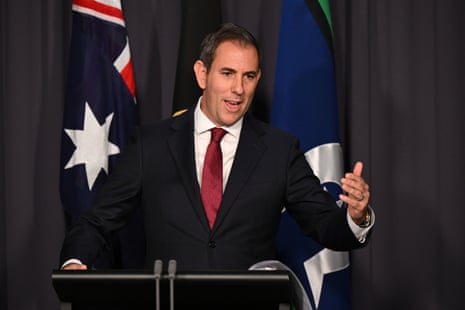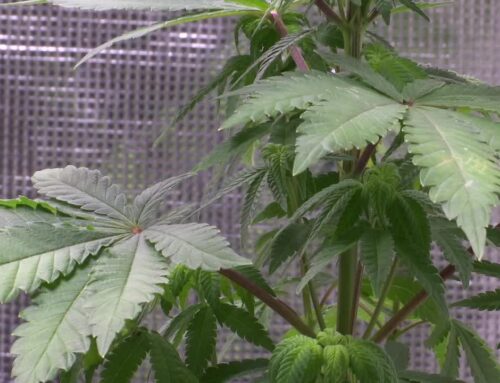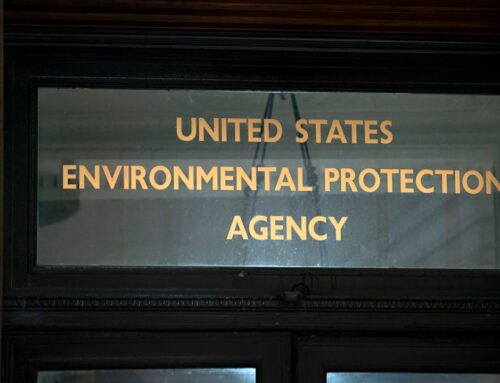Australia news live: Iran calls on ‘friendly’ Australia to condemn Israel; Watt holds summ
June 18, 2025
The Australian Energy Market Commission (AEMC) announced new rules today that will bar energy retailers from raising prices more than once per year for most people and remove fees for vulnerable customers, among other changes meant to help Australians find better energy deals.

While the changes don’t address the base price of energy, the bulk of most power bills, they will provide more information for consumers to make better choices about their providers. The changes include:
-
Customers cannot be charged higher prices for their loyalty and will pay no more than the standing offer price if their plan changes or expires.
-
The removal of unreasonably high penalties for not paying bills on time.
-
Restrict price increases in market retail contract from more than once every 12 months.
-
Prohibit fees for vulnerable customers and limit fees and charges to reasonable costs for others.
The chair of AEMC, Anna Collyer, said:
These reforms will help ensure that Australian households can have greater confidence in their energy plans and that those experiencing financial difficulty receive appropriate support.
EU ambassador to Australia says proposed security pact needed amid high geopolitical tensions
Gabriele Visentin, the EU ambassador to Australia, says Europe is trying to step up cooperation with like-minded democracies after Anthony Albanese said the government could sign on to a new defence agreement with the bloc earlier this week. Visentin told RN Breakfast heightened tensions around the world, including Russia’s ongoing war with Ukraine, demonstrated the need for such pacts, saying:
We have to step up our cooperation. The geopolitical tensions are so high that therefore we really want to strengthen our relations with any other liberal democracy which shares our value and towards respect for democracy, for freedoms and as well as for prosperity, but on a rules-based international order.
That’s why we are teaming up with all the like-minded partners in the world. Especially now in the Indo-Pacific.

You can read more about that defence pact proposal here:
A short, non-exhaustive list of things Albanese could do to improve productivity
With so much talk about how to increase productivity in the economy, Greg Jericho whistles up some trademark charts this morning to suggest five things the government could do to help.

Greg suggests these could include cutting fuel tax credits, increasing research funding and finding a way to reduce the huge but nonproductive investment in property.
Read his full piece here:
Energy minister says new power bill rules will make energy system ‘fairer’
Chris Bowen, the climate change and energy minister, said while the changes to power price rules aren’t a “silver bullet”, they’re part of an ongoing process to make the energy system fairier. He told RN Breakfast:
These are important. I’m not going to pretend that they’re a silver bullet, but clearly the situation hasn’t been working …
We are taking these steps today as part of a reform process. The reforms I announced yesterday and today’s changes are part of an ongoing reform process to make the energy system better and fairer for Australians.
There’s a requirement at the moment under law that your energy bill tells you whether you’re on the best possible offer from your retailer. Many, many Australians aren’t, and that’s not good enough in my view.

Read more here:
The Australian Energy Market Commission (AEMC) announced new rules today that will bar energy retailers from raising prices more than once per year for most people and remove fees for vulnerable customers, among other changes meant to help Australians find better energy deals.

While the changes don’t address the base price of energy, the bulk of most power bills, they will provide more information for consumers to make better choices about their providers. The changes include:
-
Customers cannot be charged higher prices for their loyalty and will pay no more than the standing offer price if their plan changes or expires.
-
The removal of unreasonably high penalties for not paying bills on time.
-
Restrict price increases in market retail contract from more than once every 12 months.
-
Prohibit fees for vulnerable customers and limit fees and charges to reasonable costs for others.
The chair of AEMC, Anna Collyer, said:
These reforms will help ensure that Australian households can have greater confidence in their energy plans and that those experiencing financial difficulty receive appropriate support.
Three industrial units were extensively damaged in a fire in the Sydney suburb of Marrickville this morning, police said. About 60 firefighters responded just before 3.30am to the blaze, where they found multiple two-storey buildings on fire.
The fire has since been contained and is under control, Fire and Rescue NSW said, and there were no injuries. An official described the site of the blaze as an industrial area with a few houses but no evacuations were needed to contain it. One of the affected units is thought to be a clothing warehouse.
Parts of Marrickville’s Cook Road will be closed this morning.
Chalmers still planning to ‘respectfully’ engage with Greens on superannuation tax reform
Chalmers has been touting the government’s upcoming economic roundtable in recent days after promising to advance bold reform during a speech at the National Press Club yesterday. He told RN plans to bring together a roundtable to craft a “targeted agenda” would help Australia weather what he described as our “major economic challenge”.
That includes the government’s plans to change the taxation on large superannuation balances. Chalmers said he would still seek to engage with the Greens, telling RN:
I will respectfully engage with the Greens and with others in the Senate to pass this legislation. We did announce this policy almost two-and-a half years ago. There has been an election in between and we’ll have the necessary conversations to try and see it passed.

Chalmers says there have been some ‘limited opportunities’ to get Australians out of Middle East
The treasurer spoke to RN Breakfast this morning, saying the Australian government remains focused on the 1,600 people who have registered to try to get out of Iran, as well as a large number of Australians in Israel. Chalmers said the Department of Foreign Affairs and Trade was working to make that happen, telling RN:
I know that the absolutely outstanding people of the Department of Foreign Affairs and Trade are working around the clock to get people out where they can.
There have been some limited opportunities so far, but they’ll be exploring opportunities through today as well.

Good morning, Nick Visser here to take you through the day’s news. Thanks to Martin Farrer for getting things started today. Let’s see what Thursday has in store.
Jim Chalmers is dreaming of big economic reform. But is history on his side?
Jim Chalmers talked a big game in his speech about economic reform yesterday, asking people to forget their narrow interests and consider the national interest instead.
But that, Patrick Commins argues, is a big ask in a risk-averse political climate – starting with the prime minister – when the fight over a relatively minor tweak on taxing super provoked uproar.
Read his full article here:

Watt confirmed he intended to put a “broader reform package” to parliament than the shelved plan to legislate to create an EPA and to legislate for a second body, Environment Information Australia.
He said the package would include an EPA, but he had an open mind about its role, powers and scope. He thought it should also include national environment standards – as recommended in a review led by the former Australian Competition and Consumer Commission chair Graeme Samuel – but Watt said he had not made a final decision.
The federal EPA is an important means to an end around environmental protection, but I think we also need to look at: how is the system overall going to work? And what would be the environmental standards that are expected? I think we’ve actually got a better chance of passing laws if they deal with a broader range of issues.
On whether the revamp should introduce “climate considerations” into the environment laws – as suggested by Labor MP Jerome Laxale after Watt gave the North West Shelf gas processing plant in WA conditional approval to run until 2070 – the minister said he was “not ruling anything in or out”, but the government had placed emissions reduction requirements on heavy industry through the safeguard mechanism.
The safeguard mechanism is a Coalition-era policy that Labor revamped. It requires about 200 big polluting facilities to reduce emissions intensity by 4.9% a year, either through onsite cuts or by paying for contentious carbon offsets.
Leaders from about 25 mostly environment and business organisations will meet with the environment minister, Murray Watt, in Canberra today to give their views on how to fix the national environment laws.
It is the first meeting of stakeholder groups on the issue since the previous minister, Tanya Plibersek, last year delayed a commitment to rewrite the Environment Protection and Biodiversity Conservation (EPBC) Act until after the 3 May election.
A promise to create a national Environment Protection Agency was also later shelved after Anthony Albanese scuttled a potential deal with the Greens following pressure from WA.
Watt told Guardian Australia the meeting would include environment organisations, business groups, the mining industry, urban developers, renewable energy companies and first nations bodies. He said there was “very broad agreement that we desperately need change to these laws – they’re broken”.
The purpose in bringing them all together is so that people can hear each other’s perspectives, rather than being each other in their own corners, you know, fighting.
The way I’ve described it to a couple of people is: the EPBC reform train is leaving the station. We broadly know where we want to get to, but we haven’t yet defined the exact destination, and there’s an opportunity for all of these groups to be involved in shaping that final destination.
I want as many interest groups on that reform train working together as possible, rather than people choosing to stand on the platform, throwing rocks and shouting.

Iran’s ambassador to Australia has called on the prime minister to condemn Israel for its attack on his country, claiming that its nuclear program is a “peaceful measure”.
Speaking with the ABC’s 7.30, Ahmad Sadeghi asked Australia, as a “friendly nation” with which Iran is in “good relation”, to recognise that the Middle Eastern nation has a right to self defence after Israel’s attack.
Speaking about the Albanese government, he said: “They have to condemn [Israel] … I ask them.”
He said Iran’s nuclear program was a “peaceful measure” and, when pushed on whether Iran was developing a nuclear weapon, he referred to Ayatollah Ali Khamenei.
“Of course not. You know it has been prohibited by our supreme leader,” the ambassador told the host, David Speers.
Sadeghi did not give a straight answer when asked whether Israel had a right to exist and said that should the US become directly involved in the Israel-Iran war, some 80,000 US personnel stationed in the Gulf region would “not be as comfortable as much as now”.
“The other the Islamic nations around the north, in Pakistan, in Afghanistan, in Iraq, in [the] southern part of the Persian Gulf. All, if Iran would be attacked by the US, they would not be silent,” he said, before urging Donald Trump to be “more careful”.
Good morning and welcome to our live news blog. I’m Martin Farrer with the top overnight stories and then it will be Nick Visser for the bulk of proceedings.
Iran’s ambassador has called on Anthony Albanese to condemn Israel’s attack on the Islamic Republic. The request adds to the prime minister’s in-tray as he heads home from an unsuccessful attempt to engage Donald Trump on tariffs, and considers his second term agenda with parliament’s first sitting just a month away.
One of the big pieces of unfinished business from Labor’s first term was the creation of an environmental protection agency. To address the issue, the environment minister, Murray Watt, is meeting leaders from about 25 mostly environment and business organisations in Canberra today to hear their views on how to fix the national environment laws. More details coming up.
Search
RECENT PRESS RELEASES
Related Post



